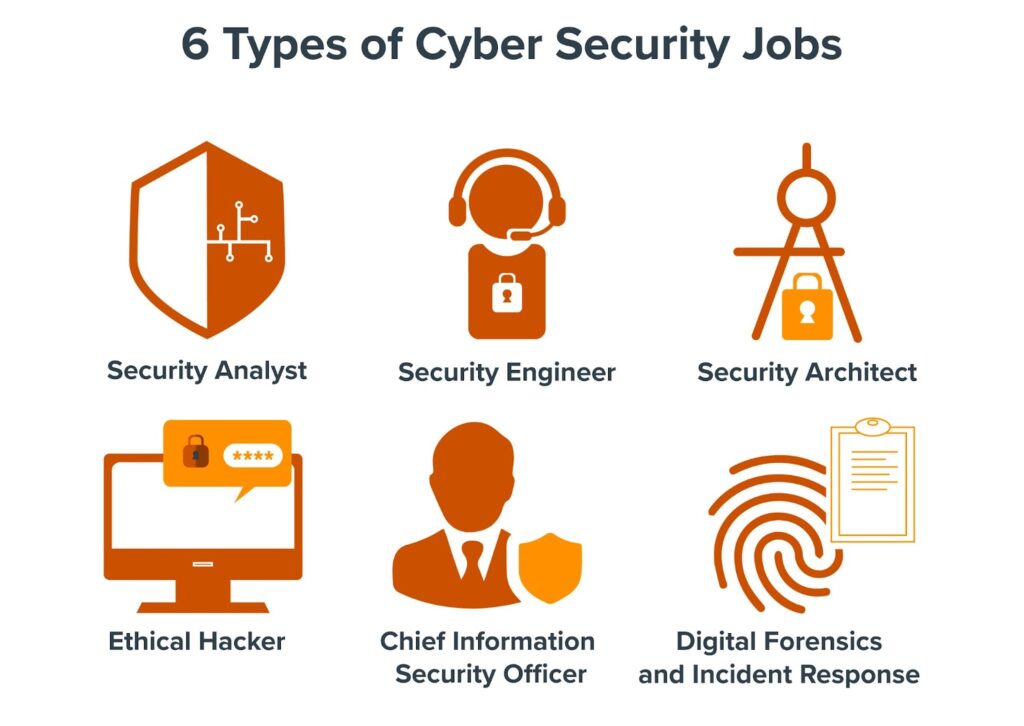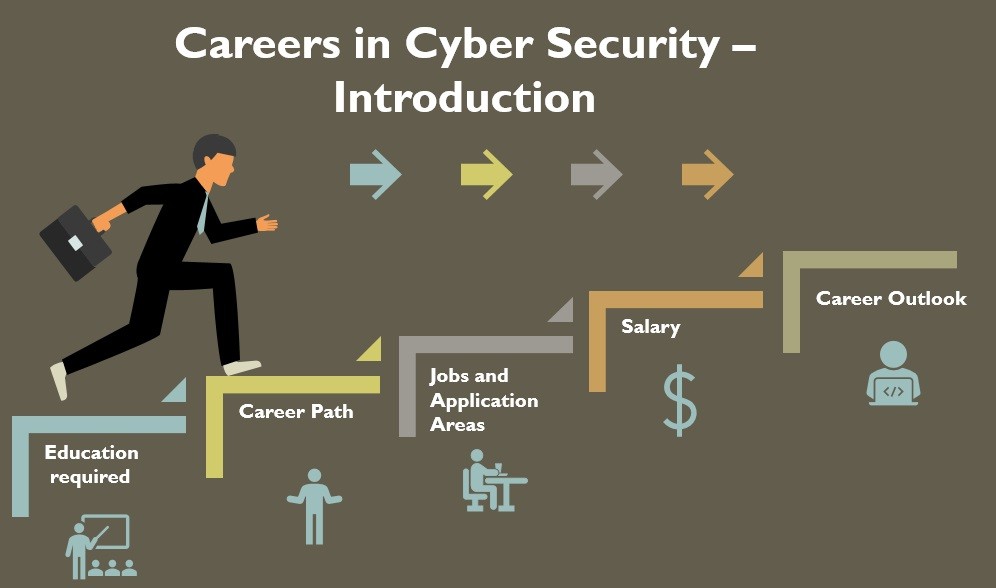popular Computer Scientists and Tech Duos Who Impacted the Industry


The world of computer science has been shaped by the remarkable achievements of numerous famous computer scientists.
These brilliant individuals have made groundbreaking contributions to the development of programming languages, artificial intelligence, computer programming, and the internet as we know it today.
As pioneers in their respective fields, they have laid the foundation for the modern computer era and inspired countless others to follow in their footsteps.
So, let’s delve into the lives and accomplishments of 25 of the most influential computer scientists (and scientific teams) who have left an indelible mark on the industry.
From the inception of the first programming language to the creation of the World Wide Web, these extraordinary men and women have revolutionized the way we interact with technology, transforming our lives in the process.
The rise of personal computers, the internet, and powerful programming languages
Their innovations have led to the rise of personal computers, the internet, and powerful programming languages that have enabled us to solve complex problems and develop cutting-edge software.
Through their dedication and ingenuity, they have pushed the boundaries of what is possible and set the stage for future generations of computer scientists to explore new frontiers in technology.
If you’re interested in computer science and want to learn more about the industry, it’s always wise to start by studying its founding fathers (and mothers!)
There is so much to learn from those who have gone before us, and sometimes it’s just fun to reflect on how technology has evolved.
But most importantly, as an aspiring computer scientist, you want to know about the famous computer scientists who have paved the way for you.
Keep reading as we introduce you to some of the most notable men and women of the past and present.
It’s amazing to consider that a couple of these innovators were born in the 19th century—meaning some of the scientists and world-changers below were born more than a hundred years after other people on the list.
Each of the people below is a piece in a massive jigsaw puzzle that is yet to be completed. Here they are, in no particular order:
- Alan Turing (1912-1954): The father of theoretical computer science
Alan Turing, one of the most famous computer scientists, was a mathematician, logician, and cryptanalyst during World War II.
Turing made significant contributions to artificial intelligence, developing the Turing Test as a method for determining a machine’s ability to exhibit intelligent behavior.
As a pioneer in theoretical computer science, he designed the Turing machine, which laid the foundation for modern computers.
- Grace Hopper (1906-1992): A pioneer in computer programming
Grace Hopper, an American computer scientist, was instrumental in the development of computer programming languages.
She created the first compiler, a program that translates high-level language code into machine-readable code.
Hopper was also involved in the creation of COBOL, one of the earliest high-level programming languages.
As a software engineer, her innovative work paved the way for many computer scientists who followed.
- John von Neumann (1903-1957): The electronic digital computer visionary
John von Neumann, a Hungarian-American mathematician and computer scientist, played a crucial role in the development of the electronic digital computer.
His groundbreaking work on the architecture of modern computers, including the concept of stored-program computers, influenced the design of most computers today.
He also contributed to fields such as game theory, quantum mechanics, and operations research, making him one of the most famous computer scientists in history.
- Sir Tim Berners-Lee (b. 1955): The inventor of the World Wide Web
What would the world be like today without “www.”? Sir Tim Berners-Lee, a British computer scientist, invented the World Wide Web, revolutionizing the way people access and share information.
He created the first web browser, web server, and the Hypertext Markup Language (HTML) that enables web pages to be displayed.
He laid out his vision for the internet-based sharing tool in 1989 while working at CERN and by 1991 others outside of CERN were invited to join the web.
Sir Tim not only invented the “www” that the internet still thrives on, but he fought to make sure the web stayed free and became accessible for anyone.
As the founder of the World Wide Web Foundation, Berners-Lee continues to advocate for an open and accessible internet for everyone.
- Ada Lovelace (1815-1852): The first computer programmer
Ada Lovelace, an English mathematician, is considered the first computer programmer.
She worked alongside Charles Babbage on his Analytical Engine, a general-purpose mechanical computer.
Lovelace wrote the first algorithm intended for processing by a machine, demonstrating the potential of a computing device to perform complex calculations.
Her visionary work continues to inspire computer scientists today.
- Donald Knuth (b. 1938): The master of computer programming languages
Donald Knuth, an American computer scientist and mathematician, is best known for his multi-volume work, “The Art of Computer Programming.”
This series covers the theory and practice of computer programming languages, data structures, and algorithms.
Knuth also developed the TeX computer typesetting system, which is widely used in academia for formatting complex mathematical equations.
His contributions to the field have earned him the prestigious Turing Award.
- Edsger Dijkstra (1930-2002): The leader in programming language design
Edsger Dijkstra, a Dutch computer scientist, made significant contributions to computer programming languages and the development of algorithms.
He introduced the shortest-path algorithm, known as Dijkstra’s algorithm, and emphasized the importance of data abstraction and structured programming.
As a recipient of the Turing Award, his work has influenced the way computer scientists think about programming and problem-solving.
- Marvin Minsky (1927-2016): The artificial intelligence genius
Marvin Minsky was an American computer scientist and a pioneer in the field of artificial intelligence.
He co-founded the MIT Media Lab and the Stanford Artificial Intelligence Laboratory, where he developed groundbreaking theories on machine learning algorithms and neural networks.
Minsky’s work in AI, robotics and cognitive science has laid the foundation for modern advancements in artificial intelligence.
- Linus Torvalds (b. 1969): The creator of the Linux® operating system
Linus Torvalds, a Finnish-American computer scientist, created the Linux operating system, which is now one of the most popular operating systems worldwide.
He also developed the Git version control system, a tool widely used by software engineers for collaborative coding.
Torvalds’ contributions to open-source software have had a significant impact on the computer industry and inspired a new generation of programmers.
- Vint Cerf (b. 1943) and Robert Kahn (b. 1938): The architects of the Internet
Vint Cerf and Robert Kahn, two American computer scientists, co-invented the Transmission Control Protocol (TCP) and the Internet Protocol (IP), the foundational technologies that make up the backbone of the internet.
Their work on the design of distributed systems and the development of network protocols has enabled the creation of a global network that connects billions of people and devices.
- James Gosling (b. 1955): The father of the Java® programming language
James Gosling, a Canadian computer scientist, is the creator of the Java programming language, one of the most widely used programming languages today.
Java’s “write once, run anywhere” philosophy revolutionized software development, allowing programs to run on various platforms without modification.
Gosling’s work on the Java language has had a profound impact on the computer industry and the way we develop software.
- Margaret Hamilton (b. 1936): The woman behind the moon landing software
Margaret Hamilton, an American computer scientist and software engineer, was the lead engineer for the Apollo Guidance Computer software that enabled the Apollo 11 mission to land on the moon.
Her work on software engineering, error detection, and recovery mechanisms has had a lasting impact on the field.
As the founder of Hamilton Technologies, she continues to develop innovative solutions for complex software systems.
- Katherine Johnson (1918-2020): The NASA mathematician who reached for the stars
Katherine Johnson, was a mathematician and computer scientist who played a crucial role in NASA’s early space missions.
Her calculations of orbital mechanics were instrumental in the success of the first US manned space flights, including John Glenn’s historic orbit around the Earth.
Johnson’s extraordinary work at NASA broke racial and gender barriers, paving the way for future generations of women and people of color in the fields of mathematics and computer science.
- Anita Borg (1949-2003): The advocate for women in technology
Anita Borg dedicated her career to increasing the representation of women in the technology industry.
She founded the Institute for Women and Technology (now the Anita Borg Institute) and the Grace Hopper Celebration of Women in Computing conference.
Borg’s tireless work to support and empower women in technology has left a lasting legacy, inspiring countless women to pursue careers in computer science and technology.
- Steve Jobs (1955-2011): The mastermind behind Apple®
Steve Jobs, a visionary entrepreneur and co-founder of Apple Inc., revolutionized the tech industry with his incredible innovations.
Jobs’ passion for design and user experience led to the creation of iconic products like the Macintosh® and iPhone® which have shaped the way we interact with technology today.
Through his leadership, Apple became synonymous with cutting-edge design and unparalleled user experience, making Jobs one of the most influential figures in the computer and technology industry.
- Larry Page (b. 1973) and Sergey Brin (b. 1973): The founders of Google®
Larry Page and Sergey Brin, the co-founders of Google, changed the way we access and use information on the internet.
While pursuing their Ph.D. at Stanford University, they developed the search engine algorithm that would become the foundation of Google.
Their work has not only made it easier for people to find and share information but also led to the development of numerous innovative technologies, such as Google Maps® and Gmail®.
Page and Brin’s contributions have revolutionized the way we live, work, and communicate in the digital age.
- Guido van Rossum (b. 1956): The creator of Python®
Guido van Rossum, a Dutch computer scientist, is best known for creating the Python programming language.
Python’s simplicity, readability, and versatility have made it one of the most popular programming languages in the world, used in fields like web development, data science, and artificial intelligence.
Van Rossum’s commitment to open-source development and his emphasis on code readability has had a significant impact on the programming community, inspiring a generation of developers to write elegant, efficient code.
- Bjarne Stroustrup (b. 1950): The father of C++®
Bjarne Stroustrup, a Danish computer scientist, is the creator of the C++ programming language.
Building on the foundation of the C language, Stroustrup developed C++ as a powerful, flexible language that supports both procedural and object-oriented programming.
C++ has become a widely used language in software development, particularly for systems programming and game development.
Stroustrup’s work has influenced countless programmers and contributed to the advancement of computer science.
- Whitfield Diffie (b. 1944) and Martin Hellman (b. 1945): Pioneers of public key cryptography
Whitfield Diffie and Martin Hellman, two American computer scientists, revolutionized the field of cryptography with their invention of public key cryptography.
Their groundbreaking work on the Diffie-Hellman key exchange protocol laid the foundation for modern encryption techniques, making secure communication possible in the digital age.
Their contributions to computer science have had a profound impact on internet security, enabling the development of secure online transactions and private communication.
- Shafi Goldwasser (b. 1959) and Silvio Micali (b. 1954): Innovators in cryptography and complexity theory
Shafi Goldwasser and Silvio Micali, two renowned computer scientists, have made significant contributions to the fields of cryptography and complexity theory.
Their work on probabilistic encryption, zero-knowledge proofs, and interactive proofs has transformed the way we approach security and privacy in the digital world.
Goldwasser and Micali have received numerous accolades for their groundbreaking research, including the Turing Award, the highest honor in computer science.
- Mark Dean (b. 1957): The innovator of personal computer technology
Mark Dean, a computer scientist and engineer, has made significant contributions to the development of personal computers.
As an IBM Fellow, Dean co-invented the ISA bus, a critical component in early PCs, and helped develop the first color computer monitor.
His work has had a lasting impact on the computer industry, and as the first African American IBM Fellow, Dean has paved the way for future generations of computer scientists of color.
- Frances E. Allen (1932-2020): The trailblazer in compiler optimization
Frances E. Allen, an American computer scientist, was a pioneer in the field of compiler optimization.
Her work at IBM focused on the development of advanced techniques for program optimization, which improved the efficiency and performance of computer programs.
As the first woman to receive the Turing Award, Allen’s contributions to computer science have inspired countless women to pursue careers in the field, breaking down barriers and paving the way for future generations.
- Guo Moruo (1892-1978): The pioneer of Chinese language computing
Guo Moruo played a pivotal role in the development of Chinese language computing.
His work on Chinese character encoding and input methods laid the foundation for the widespread use of computers in China.
Guo’s contributions to the field have enabled billions of people to access and use technology in their native language, bridging the digital divide and fostering global communication.
- Victor Bahl (b. 1964): The leader in mobile and wireless computing
Victor Bahl has made groundbreaking contributions to the fields of mobile and wireless computing.
As a Distinguished Scientist at Microsoft Research, Bahl’s work on wireless networking technologies, such as opportunistic networks and indoor localization, has helped shape the future of mobile computing.
His research has not only advanced our understanding of wireless communication but also inspired countless researchers in the field, making Bahl a leading figure in the computer science community.
- Bill Gates (b. 1955): The visionary behind Microsoft®
No list of this kind would be complete without the person you can thank for even reading this article.
Bill Gates, an American computer scientist, entrepreneur, and philanthropist, co-founded Microsoft with Paul Allen in 1975, setting the stage for the personal computer revolution.
Gates’ vision and leadership led to the development of groundbreaking products like the Windows operating system and the Microsoft Office suite, which have become staples in homes and offices worldwide.
As one of the most famous computer scientists and businessmen, Gates has had a lasting impact on the computer industry, creating software that has transformed the way we live and work.
In addition, he has dedicated his fortune to philanthropic endeavors through the Bill & Melinda Gates Foundation, focusing on global health, education, and poverty alleviation.
This is just the beginning for computer science
The remarkable achievements and groundbreaking innovations by the famous computer scientists we’ve discussed are expected to continue shaping the computer technology landscape for the next 50 years and beyond.
Their contributions have laid the groundwork for future advancements in various areas of computer science, including artificial intelligence, cryptography, programming languages, and internet technologies.
As we look forward to five decades from now, we can expect the world of computing to be vastly different from what we know today, thanks in part to the pioneering work of these extraordinary individuals.
A.I. to reach new heights
Artificial intelligence, driven by the research of Minsky and other AI visionaries, will likely have reached new heights of sophistication, enabling machines to perform tasks with human-like capabilities and even surpassing human intelligence in some areas.
This will revolutionize industries like healthcare, manufacturing, and transportation, leading to unprecedented levels of efficiency and productivity.
Creating complex software systems
In the realm of programming languages, the groundwork laid by creators like van Rossum, Stroustrup and Turing will continue to evolve, resulting in the development of more powerful, intuitive, and efficient languages that will make it easier for both professionals and amateurs to create complex software systems.
The ongoing development of programming languages will also contribute to the growth of quantum computing, a revolutionary technology that has the potential to solve problems that are currently beyond the reach of classical computers.
Cryptography, an essential aspect of modern digital security, will continue to advance, building on the work of pioneers like Whitfield Diffie, Martin Hellman, Shafi Goldwasser, and Silvio Micali.
Cyber threats and encryption
As cyber threats become more sophisticated, we can expect new encryption techniques and protocols to emerge that will ensure the security and privacy of our digital lives, from financial transactions to personal communication.
Furthermore, the advancements in computer hardware and networking technologies, driven by the innovations of individuals like Mark Dean and Victor Bahl, will lead to the widespread adoption of cutting-edge technologies like 6G wireless networks and beyond, enabling seamless connectivity and communication on a global scale.
Inclusivity in tech
Inclusivity in technology will also continue to expand, following the footsteps of trailblazers like Johnson, Allen and Borg, who have paved the way for underrepresented groups in the field of computer science.
This will lead to a more diverse and innovative tech landscape, with breakthroughs coming from all corners of the world.
The legacy of these famous computer scientists will live on through the technologies they helped create and the countless lives they’ve inspired.
Their work will continue to be a driving force behind the ongoing evolution of computer science, ensuring that the world of computing remains at the forefront of human progress and innovation.













































